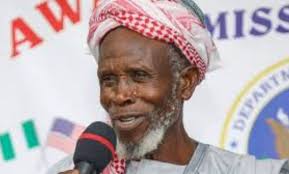
The Director-General of the World Trade Organization (WTO), Ngozi Okonjo-Iweala, has raised alarm over rising trade tensions between the United States and China, warning that prolonged hostilities between the world’s two largest economies could cost the global economy dearly.
Speaking in an interview reported by Reuters at the weekend, Okonjo-Iweala cautioned that continued trade confrontations could lead to a 7 per cent reduction in global economic output over the long term, underscoring the potential fallout from renewed tariff battles.
Her warning followed the WTO’s decision last week to sharply downgrade its 2026 forecast for global merchandise trade growth from 1.8 per cent to just 0.5 per cent, citing delayed effects from new U.S. tariffs introduced under President Donald Trump. The trade body, however, slightly raised its 2025 outlook to 2.4 per cent, reflecting short-term resilience before the latest tensions erupted.
The uneasy calm in global trade was disrupted last week after China announced new export controls on critical rare earth metals used in technology manufacturing. In response, President Trump slapped 100 per cent tariffs on a range of Chinese imports, effective next month, reigniting fears of a trade war reminiscent of earlier years.
“We’re obviously worried about any escalation in the U.S.-China tensions,” Okonjo-Iweala said, noting that both sides had previously pulled back from similar disputes earlier this year. “We are hoping that they will de-escalate again because any U.S.-China decoupling has implications not just for the two biggest economies, but for the entire world.”
The WTO chief stressed that splitting the global economy into rival trading blocs could have devastating consequences, including double-digit welfare losses for developing nations.
Okonjo-Iweala told finance ministers and central bank governors from the Group of 20 (G20) last week that “there can be no global financial stability without global trade stability.” She warned that pressures on the trading system remain high and may worsen as the impact of recent tariffs unfolds, further fueling protectionist sentiment in other regions.
Despite the turbulence, she noted that 72 per cent of global trade continues to operate under WTO rules, showing the resilience of the multilateral system even amid “the most severe policy shock in eight decades.”
Okonjo-Iweala also argued that the current crisis presents a chance for long-delayed WTO reforms, saying the organisation must become more flexible, efficient and better equipped to harness new opportunities in digital trade, services, and green commerce.
“There’s no doubt that there are global challenges no country can solve alone,” she said. “That’s why multilateralism remains vital. But to keep it relevant, we must reform and at the WTO, we are ready.”
The Director-General added that she had a productive meeting with U.S. Deputy Trade Representative Joseph Barloon, who was recently confirmed as U.S. ambassador to the WTO. She welcomed Washington’s decision to remove the WTO from its list of spending cuts to international organisations and said discussions were ongoing to settle outstanding U.S. arrears to the global trade body.
Ngozi Okonjo-Iweala, WTO, US-China trade war, global economy, Donald Trump tariffs, rare earth metals, global GDP, trade forecast, multilateralism, World Trade Organization



